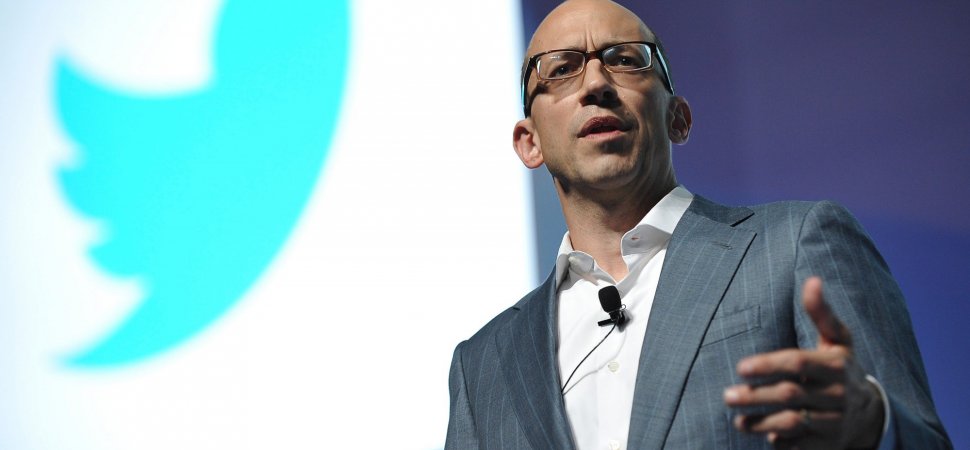Dick Costolo, the former CEO of Twitter, told CNBC that he believes newspapers and other elitist organizations should have more influence and power on social media than a normal user. Newspapers, which regularly lie, print falsehoods, and make up “sources” to get a narrative out should have more power than a schmuck like you or I according to the tech elite.
The left doesn’t actually believe in a level playing field. They don’t support equality. What they support is control. Control of the narrative. Control over who is allowed to have a voice and who isn’t. Control over our data, our privacy, and control over our time.
“You have to start treating all these accounts differently,” Costolo said on “Halftime Report.” “You’ve got high authority accounts, like newspaper accounts … that may be allowed to tweet things that a user that just signed up yesterday and has zero followers shouldn’t.”
The thought of putting in such a policy on Twitter and other social media platforms likely would make their leaders “cringe,” Costolo said. But, in an era of widespread disinformation and harassment online, its time has come, Costolo said.
For example, Costolo said an account that hasn’t provided a phone number and has no avatar shouldn’t be allowed to reply to tweets, or at least those replies should be visible only to their followers.
Costolo, who left Twitter in July 2015 after five years as CEO, mentioned a situation when he was still at the company in which ISIS and accounts affiliated with the terrorist group tweeted images from an execution it carried out.
Twitter decided to suspend accounts that shared the images, he said. But hours later, a newspaper tweeted out the front page of the following day’s paper, which included images from the ISIS execution.
“Well, now what do we do?” Costolo said in recounting the story.
“I just think these companies … have to start thinking about tiers of accounts,” said Costolo, who still owns shares of Twitter.
Twitter has recently shown a willingness to differentiate among accounts, announcing in June a new feature that would label tweets from influential government officials who violate its content policies instead of taking the posts down.
The social media company didn’t single out President Donald Trump when it announced the move, but it came after criticism from users who wondered why tweets from Trump that appear to break Twitter’s rules are not removed.
Costolo didn’t address this new feature explicitly but said he wouldn’t regulate Trump’s tweets.
“I don’t think you can have a terms of service that says we treat every account equally,” Costolo said. “It causes these companies to have to jump through hoops and twist themselves into a pretzel, and you see that with the way people think about, ‘Well, Trump’s tweet XYZ didn’t really break this rule for this reason.’ I just think you should say we’re not going to do anything to the president of the United States’ account. He’s the president of the United States.”
Twitter and other social media companies such as Facebook have faced scrutiny over the way they regulate — or fail to regulate — content.
Critics argue the companies should do more to crack down on discriminatory and offensive content. Others believe the platforms should not be restrictive, and some argue they should apply the free speech standards of the First Amendment, which applies to how government entities regulate speech, not publicly traded companies.
In May, Facebook announced it was removing the accounts of high-profile figures including Louis Farrakhan, Milo Yiannopoulos and Alex Jones and the website InfoWars, which frequently spreads conspiracy theories.
Last year, Facebook and Twitter took down accounts tied to Iranian disinformation campaigns that sought to interfere in politics.
But Twitter also caught heat in 2018 after it initially announced it would not ban Jones and InfoWars from its platform. Twitter reversed course about one month later.
It is against this backdrop that Costolo said creating different tiers of accounts could solve some of the challenges facing social media companies.
The CEOs of the platforms may not like it because many face a host of other issues, such as antitrust investigations and privacy concerns, Costolo said.
“But I think that’s probably the way forward, as hard as that is,” Costolo said.
Source






